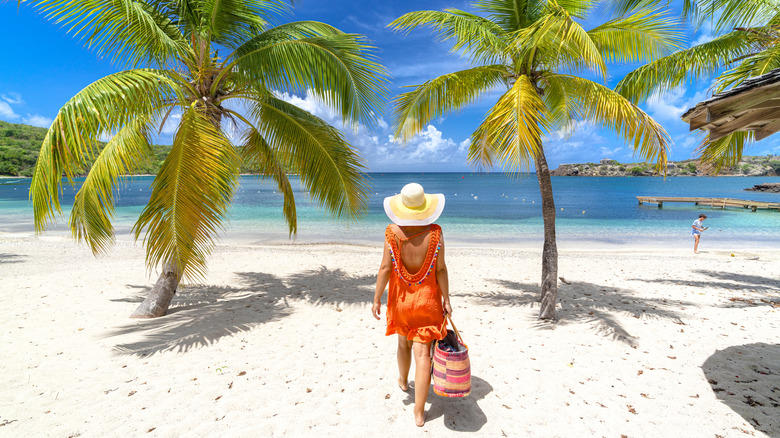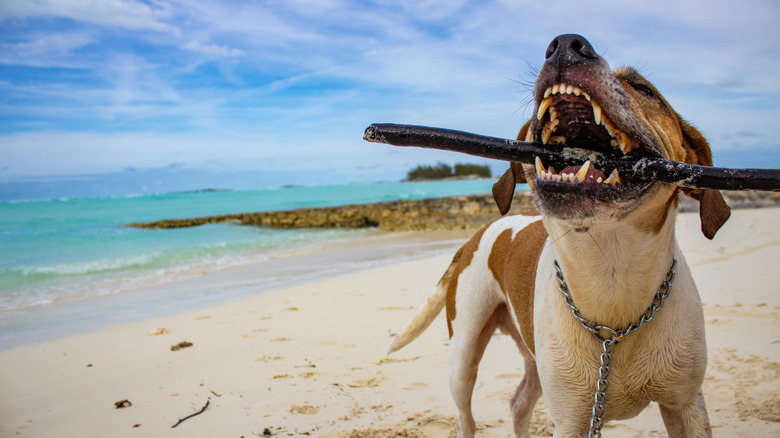The Nightmarish Parasite That Could Be Lurking At The Beach During Your Caribbean Vacation
Powdery white sand, palm trees, sparkling turquoise waters, and putting your phone on "Do Not Disturb" sound like the perfect ingredients for an incredible tropical getaway. However, if you're traveling to one of the 25 best beaches in the Caribbean — or any Caribbean beach for that matter — there's a hidden danger that could turn paradise into a nightmare: hookworms. Doesn't sound like the ideal garnish to your tropical cocktail, right?
These parasitic worms live in warm, moist environments, often in sandy beaches, where stray animals defecate — so Fido might be to blame here. According to the CDC, their larvae can penetrate human skin, usually through bare feet or legs, and lead to a condition known as cutaneous larva migrans. At first, the infection may feel like an itchy rash or small red bumps. However, as it moves under the skin, a winding, snake-like track is left behind that can be both painful and alarming.
Thankfully, Cleveland Clinic states that, if you do become infected, it can usually be taken care of with just one round of treatment. Nonetheless, a Caribbean getaway should leave you with memories — not medical bills. And, by taking small precautions, you can help keep your vacation blissful, and avoid bringing home more than just souvenirs.
How to prevent hookworms
Gone are the days when all you needed to worry about was which drinking source was safest to use on your Caribbean adventure, or which Caribbean island was the safest to visit out of the bunch. Now, when you see a stray pup prancing along the beach, and you want to give it a pet, you must be extra cautious — as they can be carriers of hookworms. What's even worse, their feces strewn along the sandy shores of that postcard-worthy beach can easily contaminate the area, putting you and others at risk. Luckily, there are ways to protect yourself.
First, travelers are particularly exposed when walking barefoot on tropical beaches, or lounging directly on the sand without a towel. As such, make sure to always wear sandals while walking on the sand, avoid direct contact with animal-contaminated areas, and use beach mats when sunbathing. Even sitting directly on the sand can be risky, so keeping a physical barrier between you and the beach greatly reduces your chances of infection. Once you're back from the beach, disinfect your feet and hands with soap before touching anything else (especially food). By following these precautions, you can enjoy the sun, sea, and sand of the Caribbean without the risk of bringing home any unwelcome surprises.

